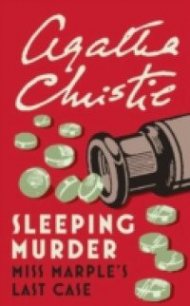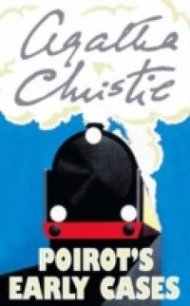Murder on the Orient Express - Christie Agatha (читать книги онлайн полностью .TXT) 📗
She sprang up. “It’s nothing. I’m all right. You don’t need me any more, do you, M. Poirot? If you do, you must come and find me. Oh, what an idiot – what an idiot I’m making of myself!” She hurried out of the car.
Arbuthnot, before following her, turned once more on Poirot.
“Miss Debenham’s got nothing to do with this business – nothing, do you hear? And if she’s worried and interfered with, you’ll have me to deal with.” He strode out.
“I like to see an angry Englishman,” said Poirot. “They are very amusing. The more emotional they feel, the less command they have of language.”
But M. Bouc was not interested in the emotional reactions of Englishmen. He was overcome by admiration of his friend.
“Mon cher, vous etes epatant!” he cried. “Another miraculous guess.”
“It is incredible how you think of these things,” said Dr. Constantine admiringly.
“Oh, I claim no credit this time. It was not a guess. Countess Andrenyi practically told me.”
“Comment? Surely not?”
“You remember, I asked her about her governess or companion? I had already decided in my mind that if Mary Debenham were mixed up in the matter, she must have figured in the household in some such capacity.”
“Yes, but the Countess Andrenyi described a totally different person.”
“Exactly. A tall middle-aged woman with red hair – in fact, the exact opposite in every respect of Miss Debenham, so much so as to be quite remarkable. But then she had to invent a name quickly, and there it was that the unconscious association of ideas gave her away. She said, Miss Freebody, you remember.”
“Yes?”
“Eh bien, you may not know it, but there is a shop in London that was called until recently Debenham & Freebody. With the name Debenham running in her head, the Countess clutches at another name quickly, and the first that comes is Freebody. Naturally I understood immediately.”
“That is yet another lie. Why did she do it?’
“Possibly more loyalty. It makes things a little difficult.”
“Ma foi!” said M. Bouc with violence. “But does everybody on this train tell lies?”
“That,” said Poirot, “is what we are about to find out.”
8. Further Surprising Revelations
“Nothing would surprise me now,” said M. Bouc.
“Nothing! Even if everybody in the train proved to have been in the Armstrong household, I should not express surprise.”
“That is a very profound remark,” said Poirot. “Would you like to see what your favorite suspect, the Italian, has to say for himself?”
“You are going to make another of these famous guesses of yours?”
“Precisely.”
“It is really a most extraordinary case,” said Constantine.
“No, it is most natural.”
M. Bouc flung up his arms in comic despair. “If this is what you call natural, mon ami–” Words failed him.
Poirot had by this time requested the dining-car attendant to fetch Antonio Foscarelli.
The big Italian had a wary look in his eye as he came in. He shot nervous glances from side to side like a trapped animal.
“What do you want!” he said. “I have nothing more to tell you – nothing, do you hear? Per Dio–” He struck his hand on the table.
“Yes, you have something more to tell us,” said Poirot firmly. “The truth!”
“The truth?” He shot an uneasy glance at Poirot. All the assurance and geniality had gone out of his manner.
“Mais oui. It may be that I know it already. But it will be a point in your favour if it comes from you spontaneously.”
“You talk like the American police. ‘Come clean’ – that is what they say – ‘come clean.’ ”
“Ah! so you have had experience of the New York police?”
“No, no, never. They could not prove a thing against me – but it was not for want of trying.”
Poirot said quietly: “That was in the Armstrong case, was it not? You were the chauffeur?”
His eyes met those of the Italian. The bluster went out of the big man. He was like a pricked balloon.
“Since you know – why ask me?”
“Why did you lie this morning?”
“Business reasons. Besides, I do not trust the Jugo-Slav police. They hate the Italians. They would not have given me justice.”
“Perhaps it is exactly justice that they would have given you!”
“No, no, I had nothing to do with this business last night. I never left my carriage. The long-faced Englishman, he can tell you so. It was not I who killed this pig – this Ratchett. You cannot prove anything against me.”
Poirot was writing something on a sheet of paper. He looked up and said quietly: “Very good. You can go.”
Foscarelli lingered uneasily. “You realise that it was not I? That I could have had nothing to do with it!”
“I said that you could go.”
“It is a conspiracy. You are going to frame me? All for a pig of a man who should have gone to the chair! It was an infamy that he did not. If it had been me – if I had been arrested–”
“But it was not you. You had nothing to do with the kidnapping of the child.”
“What is that you are saying? Why, that little one – she was the delight of the house. Tonio, she called me. And she would sit in the car and pretend to hold the wheel. All the household worshipped her! Even the police came to understand that. Ah, the beautiful little one!”
His voice had softened. The tears came into his eyes. Then he wheeled round abruptly on his heel and strode out of the dining-car.
“Pietro,” called Poirot.
The dining-car attendant came at a run.
“The No. 10 – the Swedish lady.”
“Bien, Monsieur.”
“Another?” cried M. Bouc. “Ah, no – it is not possible. I tell you it is not possible.”
“Mon cher – we have to know. Even if in the end everybody on the train proves to have had a motive for killing Ratchett, we have to know. Once we know, we can settle once for all where the guilt lies.”
“My head is spinning,” groaned M. Bouc.
Greta Ohlsson was ushered in sympathetically by the attendant. She was weeping bitterly.
She collapsed on the seat facing Poirot and wept steadily into a large handkerchief.
“Now do not distress yourself, Mademoiselle. Do not distress yourself,” Poirot patted her on the shoulder. “Just a few little words of truth, that is all. You were the nurse who was in charge of little Daisy Armstrong?”
“It is true – it is true,” wept the wretched woman. “Ah, she was an angel – a little sweet trustful angel. She knew nothing but kindness and love – and she was taken away by that wicked man – cruelly treated – and her poor mother – and the other little one who never lived at all. You cannot understand – you cannot know – if you had been there as I was – if you had seen the whole terrible tragedy! I ought to have told you the truth about myself this morning. But I was afraid – afraid. I did so rejoice that that evil man was dead – that he could not any more kill or torture little children. Ah! I cannot speak – I have no words…”
She wept with more vehemence than ever.
Poirot continued to pat her gently on the shoulder. “There – there – I comprehend – I comprehend everything – everything, I tell you. I will ask you no more questions. It is enough that you have admitted what I know to be the truth. I understand, I tell you.”
By now inarticulate with sobs, Greta Ohlsson rose and groped her way towards the door. As she reached it she collided with a man coming in.
It was the valet – Masterman.
He came straight up to Poirot and spoke in his usual quiet, unemotional voice.
“I hope I’m not intruding, sir. I thought it best to come along at once, sir, and tell you the truth. I was Colonel Armstrong’s batman in the War, sir, and afterwards I was his valet in New York. I’m afraid I concealed that fact this morning. It was very wrong of me, sir, and I thought I’d better come and make a clean breast of it. But I hope, sir, that you’re not suspecting Tonio in any way. Old Tonio, sir, wouldn’t hurt a fly. And I can swear positively that he never left the carriage all last night. So, you see, sir, he couldn’t have done it. Tonio may be a foreigner, sir, but he’s a very gentle creature. Not like those nasty murdering Italians one reads about.”



